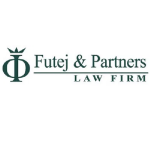Upcoming changes to the Commercial Code in the Slovak Republic primarily concern the commercial register and simplification of the process for winding up and liquidating companies.
The new legislation requires the authenticated signature of a property owner on the consent to register a company at that address; if there is more than one owner, authentication is required for the signatures of the majority co-owners (calculated based on the percentage of ownership). Where a company establishes its registered office in a property it owns, no consents are necessary, and the commercial register staff will verify ownership through the land register database.
The amendment also standardises a single designation for branch offices of foreign and Slovak entities. The practice has been to use two different designations, however, currently the single designation 'branch' will apply to both situations. Registration of a branch in the commercial register will be voluntary.
However, registration will be useful for those companies that want their current or future branch managers to have the power of representation externally, i.e. toward third parties. The manager of a branch will only have the power of representation if their name is entered along with the branch into the commercial register. All existing branches that are registered in the commercial register will be required to confirm the accuracy of their registered data by September 30 2021; failure to do so will result in automatic deletion from the commercial register after that date.
Another welcome change is the absolute ban on registering any types of restrictions and limitations in the commercial register with respect to the acts of directors on behalf of a company. Under Slovak law, any restrictions or limitations on the director(s) of a legal entity to act externally on behalf of a company, such as provisions in the internal corporate documents that set an upper financial threshold or enumerate specific 'permitted' legal acts/transactions, have no legal effect outside the company.
At most, a violation of such internal limits placed on directors, the management board, and other corporate bodies could establish the right of the company to seek compensation from these persons. Nevertheless, commercial registers were often not unified in their practice, allowing some businesses to enter a variety of restrictions and limits on directors (e.g., concluding contracts only up to a certain value, etc.), and third parties often felt legal uncertainty when trading with the company in question. Companies will have one year to remove these types of restricting/limiting entries from the commercial register.
After October 1 2020, sole traders will no longer be registered in the commercial register. This registration has been a requirement for non-EU foreign sole traders, as their licence to do business in Slovakia only became effective upon the entry into the commercial register. This change should make it easier for these persons to conduct business in Slovakia, as in most cases they can begin their business activities immediately upon registration with the local trade licensing office – and unlike the commercial register, the trade licensing office does not require the issuance of a temporary stay permit in Slovakia.
This means that foreign nationals from non-EU countries will be able to set up as sole traders in Slovakia without obtaining a temporary stay permit, provided that they are in the country legally, for instance under a visa-free regime. The amendment requires all submissions to the commercial register to be made electronically; submissions in paper form will not be accepted.
Beginning October 1 2020, a person who is the subject of debt enforcement may not establish a limited liability company, transfer their ownership interest in a company to another member or a third party, or acquire an ownership interest in a company. Likewise, this person will be prohibited from becoming the managing director of a limited liability company. One important note is that the limitation concerning directorship will not apply to persons who are currently managing directors who may already be the subject of enforcement proceedings; these persons will not lose their positions as a result of the enforcement.

|
Daniel Futej |
|

|
Daniel Grigel |


